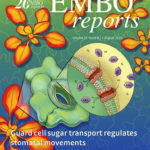
Featured image: “Cardiology Services” (CC BY-SA 3.0). Photo credits: Alpha Stock Images.
Project perspectives: interview with the Project Coordinator

Karim Lekadir is Director of Artificial Intelligence in Medicine Lab (BCN-AIM) at the Universitat de Barcelona. He holds a PhD from Imperial College London (UK) and was previously a Visiting Scholar at Stanford University (USA). His current research focuses on the development of data science and machine learning approaches for the analysis of large-scale biomedical data, including imaging, biological, clinical, lifestyle and mobile data. The software he developed during his PhD for cardiac functional quantification has been CE marked and commercialised by CMRtools, and is now used in more than 250 clinical centres worldwide. He is the Coordinator of euCanSHare and the EarlyCause H2020 project, which investigates multi-morbidity using experimental and data science approaches. He is also WP leader in the LongITools H2020 project, developing a mobile app for cardio-metabolic risk prediction. He is an Associate Editor of IEEE Transactions on Medical Imaging.
What is euCanSHare? euCanSHare is a project funded by the EU Commission to accelerate data sharing and data re-usability in cardiovascular research. To this end, euCanSHare is building an open-access IT platform within which cohort data will be made FAIR (Findable, Accessible, Interoperable and Reusable). Cardiology was chosen as the main clinical domain euCanSHare given the high health and societal impacts of cardiovascular disease, but also because lots of data and relevant expertise are already available in this field across Europe and Canada. The platform will contain tools to allow multi-centre cardiovascular data to be searched, accessed, harmonised, processed and analysed together. Importantly, legal and ethical issues related to biomedical data are being investigated by a team of international experts in the consortium to enable responsible data sharing that complies with the highest data protection and security requirements.
What is the purpose of the euCanSHare platform? The purpose of this euCanSHare platform is to accelerate data-driven cardiovascular research, by providing a user-friendly environment that will enable researchers and other users to (1) easily retrieve relevant information on the available cardiovascular data, (2) easily communicate with the data committees for requesting access and initiating collaborations, and (3) adequately process cardiovascular data that are of heterogeneous types or from different institutions.
Which data will be used in euCanSHare? Why should data sharing and access to data be facilitated? The platform is being developed to support cardiovascular data sets of different types including genomic, imaging, lifestyle, environmental and clinical data. All these data types provide complementary perspectives on cardiovascular health status and disease risk: Cardiac imaging informs about the cardiac structure and function; genomics informs on genetic predispositions to cardiovascular diseases; environmental information informs on the individual’s exposure to cardiovascular risk factors. The integration of such data gives new opportunities for a more holistic investigation of cardiovascular health and disease. Data sharing is important because the availability of large and rich datasets is an important pre-requisite for future research advances that will improve cardiovascular prevention and care. A lot of data is collected and stored every day in different places across Europe, in research or clinical centres, but it is fragmented, unstructured and under-exploited for research purposes. By facilitating access to data and promoting responsible data sharing, researchers will have increased capabilities to investigate the origins of cardiovascular diseases, to identify new biomarkers for risk prediction and early diagnosis, or to develop techniques that identify the best treatment for each patient.
Who will use the euCanSHare platform? The main users will be clinical researchers, who are investigating new approaches for cardiovascular personalised medicine, or public health researchers who will evaluate disease risks to promote prevention policies. Technologists and companies will be able to use euCanSHare to validate new tools that process complex data such as genomics omics and imaging data, or to develop new biomarkers that will be validated across multiple sites. In particular, the platform can bring an added value to start-ups, by giving them access to data for developing, validating and commercialising their new technologies or products.
What does the euCanSHare platform offer to users? The euCanSHare platform firstly offers a searchable data catalogue, so the users can find information on the available data. They will be able to search and rapidly obtain information on the size, location, types of datasets which are suitable depending on their specific research questions or use cases. They will inform themselves on the variables and measurements contained in each sample and the data use conditions to be able to request the data for research purposes. A second service will be offered via the platform to facilitate data access requests, by linking the researchers to the so-called Data Access Committees. Once access is granted, a researcher will be able to download data from/to local or central repositories linked to euCanSHare (e.g. euro-BioImaging, European Genome-phenome Archive). Finally, the platform will provide advanced analytics services to process the data (image analysis tools, bioinformatics, machine learning to build predicted models, etc). The first version of the euCanSHare platform will be available for the consortium in December 2020 for an internal testing period of two years to optimise its capabilities. The final open-access version of the platform will be provided to all users at the end of the project by November 2022.
Can a researcher or a clinician who is not involved in the euCanSHare consortium have access to the platform? How? Yes, of course! The euCanSHare is intended as an open-access platform for all researchers and we are in fact very interested to establish collaborations with researchers outside the consortium. For example, we are aiming to establish links with more data providers, who might be interested in linking their metadata to the platform to increase the visibility of their cohorts. Furthermore, we will organise campaigns to attract researchers and technologists as potential future users of the platform.
What are the main challenges of the project and why is the cooperation between EU and Canada so relevant? Data sharing is important, but it is far from trivial as we are faced with many obstacles. Firstly, from an ethical and legal point of view, the legal landscape and the data use conditions differ greatly from country to country. Our Canadian partners at McGill University have world-renown expertise for studying legal interoperability to facilitate responsible data sharing across jurisdictions. There are also technical challenges when managing such complex and heterogeneous data, and we are fortunate to collaborate with our Canadian partners Maelstrom Research, who have years of experience building software solutions for harmonising, organising, co-analysing and documenting multi-centre cohort studies. We also collaborate with cardiovascular researchers from the Canadian Alliance for Healthy Hearts and Minds, who have experience working with heterogeneous cardiovascular datasets compiled from many provinces across Canada. All these experiences are adding great value to the project and constitute great complements to the already existing infrastructures in Europe (euro-BioImaging, EXILIR, BBMRI).
Why is euCanSHare needed and how can it contribute to improving citizens’ life? euCanSHare will contribute to the improvement of citizens’ health by accelerating data-driven research studies that will lead to new knowledge, new biomarkers, predictive tools, and public health policies, that will result in better prevention, diagnosis and treatment of cardiovascular diseases. Given the health and societal burden of heart disease, the euCanSHare platform will unlock the potential of data in the cardiology domain for the benefit of the citizens and patients.
What else would you like to share with the reader? In addition to building a data platform for heart research and addressing the technological, ethical and legal challenges, we are fully committed to promoting a data-sharing culture at different levels and involving all relevant actors, including patients, researchers, clinicians, authorities and companies. A secure environment will be made available for responsible and trusted data sharing; at the same time, a cultural transformation is needed to make the best out of these solutions. Our belief is that everybody can make our society healthier, more prosperous and more sustainable through data sharing!

